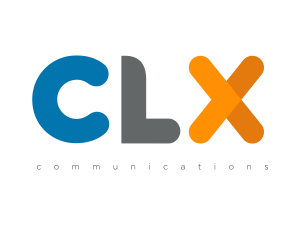 In the age of the 24/7 consumer, the smartphone has become an essential tool, enabling us to achieve an ever-expanding range of tasks while on the go; from banking to shopping to booking a holiday.
In the age of the 24/7 consumer, the smartphone has become an essential tool, enabling us to achieve an ever-expanding range of tasks while on the go; from banking to shopping to booking a holiday.
Therefore, as consumers our never-ending quest for convenience means we naturally gravitate towards apps or services that make our lives more efficient and convenient.
This trend is changing the way we use smartphones.
Mobile app use is in decline and the types of app we most frequently use is evolving. We’re now spending less time playing games and using lifestyle apps, while the finite time we do have to use our smartphones is being channelled into more task orientated apps. As an example, usage of shopping apps increased 54 percent from 2016 to 2017, while the use of mobile games was down by 16 percent.
Also Read: Why Will RCS Messaging Be More Effective Than Apps
But while the type of mobile apps we are using is changing, a new next-gen messaging experience which is coming soon, could see consumers move away from mobile apps altogether. It’s called RCS.
The Arrival of RCS
After 25 years, SMS is getting an upgrade. The world’s mobile operators, handset makers and Google are now working to make RCS (sometimes called SMS 2.0) the default messaging app on millions of phones.
Unlike SMS, RCS (Rich Communications Service) offers an app-like experience to every consumer inside a chat session – without the pain of downloading a native app.
So how does RCS work? Well, imagine sending a delivery alert to one of your customers. Of course, the message will tell the recipient when the product will arrive, but here’s where RCS comes into its own. The message could also contain a menu of options to change the delivery date, edit the order, or call a customer service agent. Powered by artificial intelligence, the message might also suggest complimentary products and feature promo videos of said products, alongside a map showing the nearest stockist.
RCS also makes it easier to measure the effectiveness of mobile activity. It provides read receipts, so marketers can do A/B testing to compare the impact of different approaches.
Therefore, it’s no surprise that many experts believe RCS will upend the mobile customer care experience. Why? Because it gives brands and enterprises the tools to deliver an app-like experience without the cost and hassle of building a native app and without the big dollar marketing campaigns to get people to download it.
This is significant. For the last 10 years, a chorus of experts have told brands one thing: you need an app. They argue that social habits dictate it: customers have switched attention from traditional media to mobile. They’re shopping and performing more tasks on their smartphones too.
But with the arrival of RCS, many of those assertions no longer hold true which is why the arrival of RCS doesn’t bode well for the long-term future of apps.
Also Read: Banner Ads: Alive and Thriving in Casual Mobile Games
The Power of Ubiquity
Currently, most people only use messaging apps to stay in touch with friends, not brands. As a result, ‘Over the Top’ messaging apps like Facebook Messenger and WhatsApp still lack one important quality: ubiquity. Now, most consumers don’t care about ubiquity. But businesses do. They want one channel to reach everyone.
This explains why SMS use has fallen among consumers, but soared among companies. We’re all familiar with enterprise use cases: delivery alerts, PIN codes, marketing offers etc. They’re concise, direct and personal – and they save huge amounts of time and effort in customer care. According to analyst Ovum, businesses sent 1.16tn SMS messages in 2016 and will send 1.28tn texts by 2019.
As the next version of SMS, RCS now promises to be the universal channel that enterprises can use for an entirely new kind of mobile messaging. Indeed, a 2017 survey by Ovum revealed many are ready. It found 36 percent of organizations say they would be interested in using an enhanced SMS service, such as RCS. And more than half would be willing to pay between 1.5 times to three times the price of an ordinary per-message SMS.
The justification for the higher price is the probable return on investment. Many of the enhanced features of an RCS message could slash costs elsewhere. Consider the button that changes the date of a delivery. That single click would cost much less than when call centres and agents manage the process.
Also Read: Connected Apps Help Drive Digital Transformation
Dawn of a New Era
The industry is working towards a roll-out of RCS which is happening carrier by carrier. The change won’t be instant. It will start with Android on selected carriers and will take time for users to upgrade. RCS on iOS remains an unanswered question, though analysts believe it’s a matter of time before Apple supports RCS as a fallback to iMessage, as it does with SMS.
Further ahead is the prospect of building secure card transactions into a chat session. That would genuinely change shopping forever. A session that starts: ’you have a new message’ could end up with ‘you have a new lawnmower’.











